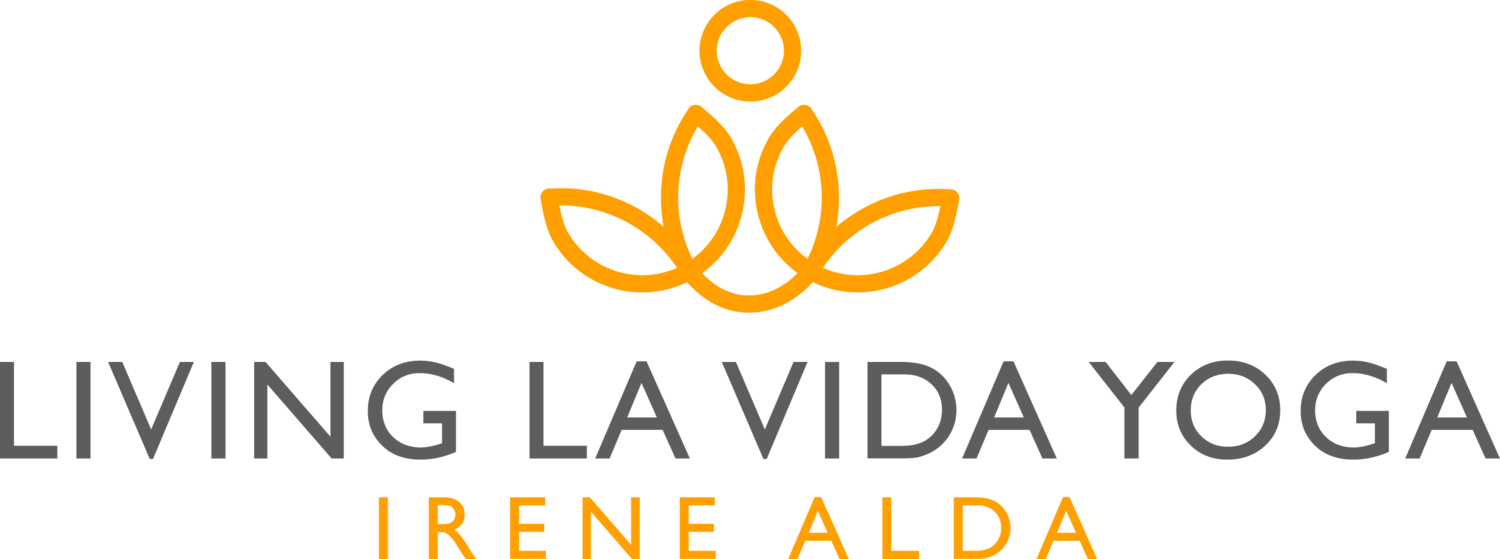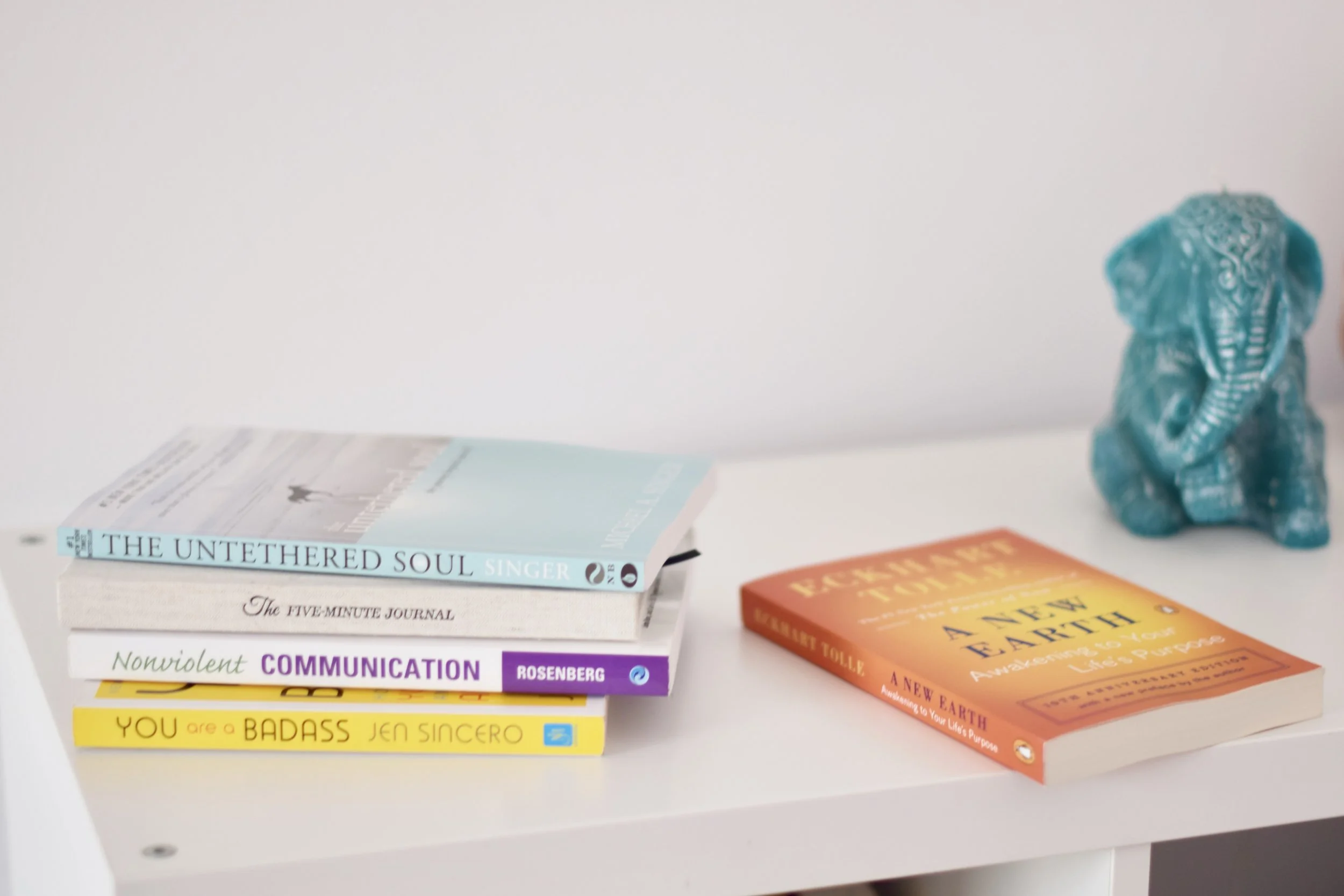Ok, finished! What now? Do you also get this feeling with books? Always on the search for an inspiring one? Although I enjoy reading fiction and classics, I find that a chapter or a few pages of a “self-help” book before giving into sleep feeds the heart and soul, giving you something to think about and grow (and implement in life of course!). After reading “You are a Badass” by Jen Sincero and “A New Earth” by Eckhart Tolle, I was hungry for more of these type of reads, here are my recommendations and why and what I learned from them:
The Untethered Soul
Happiness and peacefulness is our natural state, yet our mind gets in the way with the events and disturbances that occur in life. The author begins describing the voice inside our head, how, since we can observe it, it is not really us. We are the observer of what we think, feel, and of what we experience.
The key is to be aware that we are aware, so you no longer become completely immersed in the events around you. When we are not concentrated, our consciousness gets attracted to something and focuses on it. For instance, I’ve found very helpful the idea of saying “hello” inside your head to recenter like the book suggests.
When we are balanced and loving, we have a lot of energy. The author discusses how we are programmed to open or close ourselves based upon our past experiences. How impressions of the past (our samskara) get stimulated by events in the present. The teaching that I take from this is: “Do not let anything in life be important enough that you’re willing to close your heart over it. Embrace life with all your heart and soul, and your energy level will be phenomenal. Let go of. Dare to be different. Enjoy all life”. When we are in such a state, this is also contagious and people around you will mirror it.
The book continues describing how fear is what stops us from being free: fear of losing a loved one, fear of being alone. It sets one in a state of mind that invites suffering as soon as an action related to that fear appears. And here is the key: pain is part of the freeing process. We must be willing to go through it for spiritual growth: observe the mind drama, the stirred up feelings, etc. As soon as you are observing what is happening to you, you free yourself from it.
In the end, we are the main obstacle to our own happiness. Our preconceived ideas of how our reality should be and what society prizes doesn’t need be necessarily what we feel aligned with. The book invites one to make a pact to be happy forever, independent of what happens to us. Of course this is easy when things are going well, but difficult when we go through bumps in life.
One of the things that I liked towards the end of the book is the concept of “Death as a teacher”: living every week as if it were the last one. Death treats us all like equals and the fact that life is limited is what makes it so valuable. I also enjoyed the idea of believing in God/Universe/Energy because when everything is so balanced and graceful in nature, we just marvel at the beauty of the world around us.
Non-violent communication
Whenever there is a conflict, there is a need that is not being met. In most occasions, the way to solve a problem between two parties is to arrive to a compromise. Here, with NVC, the method allows the needs of both parties to be met, allowing them to feel safe.
Often times, we express how we feel about certain events in away that we can make others feel guilty, manipulated or mistreated. The NVC formula consists in: 1) stating the facts (no judging!), 2) expressing how you feel (taking responsibility of your own feelings), 3) describing your needs, and 4) making a request.
To state the facts without judging, we will use words that do not show appreciation (eg. you always come home late vs. you came home at 8pm on Monday, Tuesday and Thursday this week), just a description of the event. When we state our feelings, this should be done in a way that we don’t make the other person responsible for how we feel. We are responsible for our feelings (I feel abandoned vs. I feel sad). As we describe our needs, it is important to do it precisely. In the example mentioned above, this could be “I need quality time in the evenings during the week. It makes me feel safe and loved.” Although we stated what we have observed, felt, and needed, it is key to make a request to the other person so they can take action (e.g. Could we make dinner together twice a week and go out once a week? Perhaps plan the meal together (what to cook, etc, ?).
However, not everybody is always ready for this type of conversation. Often times the people we are talking to don’t have their needs met either. We need to listen to their needs in their words, ask questions, and show empathy. And then, once they are open to listening and feel safe, we can have a conversion similar to the one previously mentioned. Also, a great way to make sure that we have been understood is to ask the other person to repeat what you’ve shared.
When someone is angry, it can be specially hard to communicate effectively. This is where I think that NVC can be very helpful in all relationships. I really liked the example of someone having a cheat-sheet in his interactions. Anger is a manifestation that the needs are not being met. It is then when we have to listen in closer to actually hear the need behind the anger.
I’ve found this book to be very enriching in my relationships. I aim to listen for the needs behind the words, moods, and actions and act accordingly. I feel like this should be taught in all schools and work center to ensure a more comfortable and happy communication between friends, family, and co-workers.
I’d love to hear about if you enjoyed them and what you thought! Let me know :)
xx
Irene

